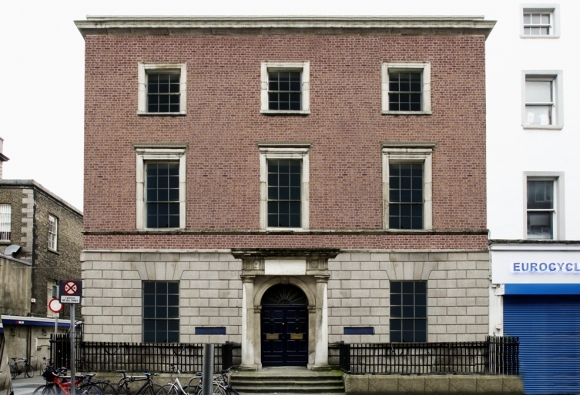This week saw Sandra Lefroy speak to the Irish Georgian Society for a hotly anticipated and sold-out lecture on her family’s impressive literary history, with the centrepiece and top selling point of the evening no doubt being the promised discussion of Jane Austen’s famous relationship with Lefroy’s ancestor by marriage Tom Lefroy. The relationship between Austen and Lefroy was introduced to mainstream public consciousness in the successful romantic drama Becoming Jane, which used Austen’s sparsely documented but widely historicised relationship romance with Lefroy as creative inspiration.
Sandra Lefroy herself is the great-great-great-grandniece of legendary poet William Wordsworth (she is descended in direct family line from Wordsworth’s youngest brother, Christopher). Lefroy is now a published poet in her own right, and as well as her own writing she has devoted much time and effort into researching her family and its literary legacy. She is also a regular contributor to the popular RTE Radio One programme, Sunday Miscellany and Lyric FM’s Quiet Quarter. A prolifically busy woman to be sure, her presentation was a real coup for the event listings of the Irish Georgian Society. Lefroy found her literary legacy to infiltrate her personal as well as her professional life when she married John Lefroy, the great-great grandnephew of Tom Lefroy, whose family history served to expand Sandra Lefroy’s ever-expanding breadth of research and expertise.
Lefroy treated an enraptured audience to an hour of eloquent recollections and readings that explored the fortunes of the Wordsworth and Lefroy families as they rose and fell across generations. Particular attention was paid as promised to Tom’s youthful romantic tryst with the yet to become legendary Austen.
The Irish Tom Lefroy, who would go on to serve as Lord Chief Justice of Ireland, was born and raised in Limerick. After exerting all of his time, energy and passion to securing an outstanding academic record in Trinity, Tom visited family in Hampshire in England for some much-needed rest and relaxation.
He got much more than he bargained for upon meeting local young woman Austen and their unabashed flirtations quickly became the talk of the town. It is widely critically accepted that Austen took this romance as her main inspiration for her landmark work, undoubtedly one of the greatest novels ever written, Pride and Prejudice. Although it is certain that Austen used herself and Tom as templates for her characters the jury is out amongst critics who continue to argue over whether Tom provided the model for Mr Darcy, with Lizzie modelled after Austen or indeed if it was the other way around. As much of their correspondence was destroyed by Austen’s sister Cassandra much must be left to the imaginations and educated guesses of fans and scholars alike. Nonetheless Sandra Lefroy’s lecture provided interesting, superbly researched and lyrical presentation of a pivotal moment in literary history with a decidedly insider perspective.
Lefroy also brought to light the scandalous recent discovery of possible second key interaction in Austen’s romantic life, which up until now has firmly centred on Tom. This evening’s lecture presented exciting evidence that Austen may have had another affair later in her all-short lifetime, this time with a sea captain, John Wordsworth, the brother of William Wordsworth himself. And so it seems the connection between the Wordsworths, the Austens and indeed the Lefroys begins not with Sandra’s marriage but with a romantic tryst decades earlier – one that may well have served as inspiration for another of Austen’s lauded novels, Persuasion, and its romantic hero Captain Frederick Wentworth.
Ultimately the Irish Georgian Society presented an evening that was both delightful and educational, with a guest whose words were as evocative as they were informative. Her ancestors would no doubt have been proud.







